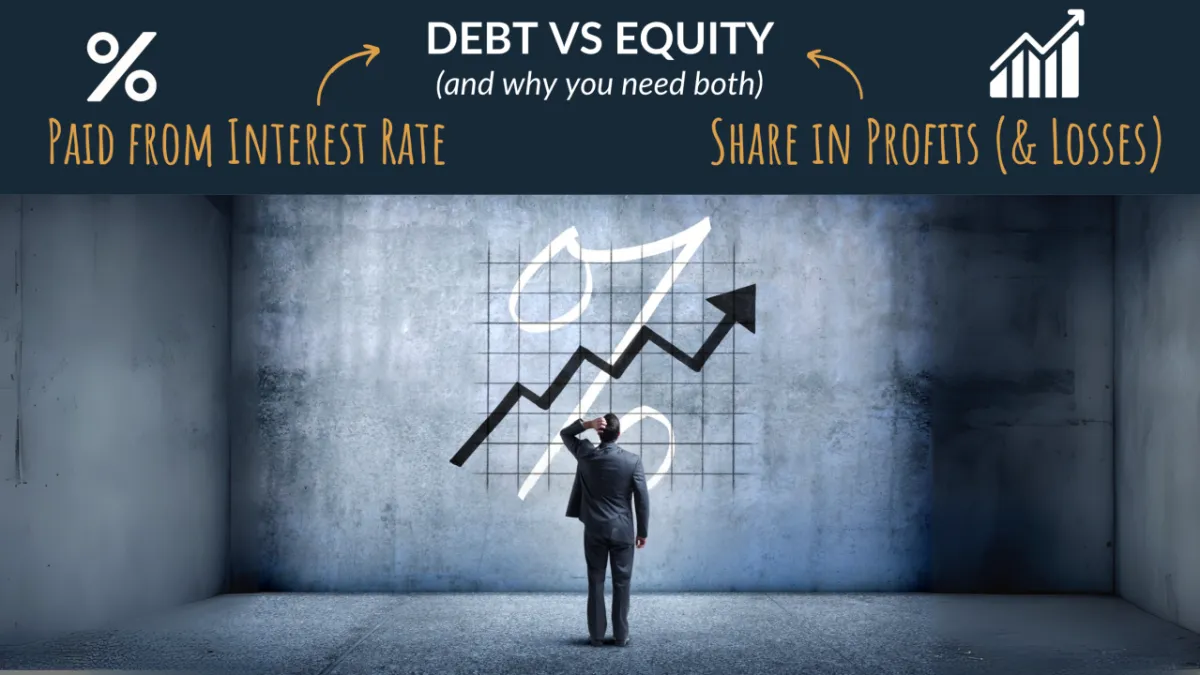Rise Capitals Articles To Educate And Inspire

DECISIONS, DECISIONS
"By balancing short-term hard money loans with long-term equity investments, we’ve created a diversified portfolio that provides steady income, growth potential, and tax benefits, all while minimizing the risks of any one asset type."
Rise Capital Investments
When we decided to retire early, we had some decisions to make on how to get there, but also how to support ourselves without a regular income.
We combined several strategies to not only diversify and hedge against risk, but also to take advantage of high growth, cash flow, and tax savings all in one portfolio.
No one asset type can do all of these well, so adding several techniques allows us to enjoy many pros of all the assets while minimizing the cons of each individually.
Most of our portfolio income came from a few sources. For our personal investments that we hold on our own without partners, there are rental houses individually as well as sold some to the tenants on long-term mortgage notes. As these houses are sold or refinanced to pay off our mortgage notes, we reinvest that capital into increasingly passive deals that we co-invest in as a group.
For our group investments that we hold with partners and/or investors, those take two forms that we share with our investor database to invest alongside us in the same deals we use to support our own early retirement.
Private investments in real estate with a group of investors is known as a "syndication" where each partner funds a portion of the cash needed to purchase and manage the property or mortgage.
Short-Term Hard Money Loans vs. Long-Term Equity in Commercial Real Estate
At our private investing fund Rise Capital Investments, we offer two types of real estate opportunities tailored to different investor preferences.
Most investors go too heavily into one or the other of these asset types, but both are part of a responsible real estate portfolio. The question is, as we approach retirement, how much of each type should be allocated when.
First, we provide short-term hard money loans on residential and small commercial properties, offering a more immediate return.
Second, a few times a year we offer private equity investments in commercial real estate, which we either manage ourselves or in partnership with larger, experienced operators.
Both options are designed to give you a passive role while our team does the heavy lifting of identifying deals and then servicing the investment throughout its life cycle.
As we explore the pros and cons of each investment type, think about your unique investing and retirement goals and when these assets fit into those.
Remember, there are no solutions: only pros and cons.
SHORT-TERM HARD MONEY LOANS

Short-term loans can be fore residential or commercial property rehabs.
Hard money loans, sometimes known as bridge loans in commercial real estate, typically offer short-term financing for real estate projects.
Quick Returns with Hands-Off Involvement
Pro: Fast Returns and Liquidity With High Interest Rates
Short term loans come with higher interest rates, often ranging from 8% to 12% or more. The advantage here is speed and the potential for high returns in a short time frame, sometimes within 6 to 12 months. This combination of high returns and fast turnaround is what gives short-term notes great cash flow that can be paid out monthly to quarterly or in a balloon at the pay off.
Pro: Passive Investment Secured by the Property in First Lien
As a lender in our fund, your investment is completely passive after your initial commitment. Your investment is secured by a first lien mortgage position recorded at the county with the property as collateral, providing a tangible form of protection. In the event of default, our team handles all aspects of the property, from taking ownership to liquidation, ensuring you don't need to be involved in the day-to-day details. In addition, lenders have first claim on a property and get paid first before equity investors, so it's a safer position in the capital stack than equity.

Manage risk by a higher position in the capital stack.
Con: Interest Income Taxed at Ordinary Rates
Interest income from hard money loans is typically taxed at ordinary income tax rates, which can reduce your net return. However, if you invest through a self-directed IRA, your interest income can enjoy the same tax advantages as the specific IRA type you choose, whether it's tax-deferred growth in a traditional IRA or tax-free growth in a Roth IRA.
As investors approach IRA distribution age, it's common to have more emphasis on cash-flowing short-term notes in their retirement accounts to support them as they prepare to retire or slow down in their business.
Con: Market Fluctuations and Short-Term Focus
While hard money loans can offer higher returns than the stock market, market conditions can change rapidly, impacting the borrower’s ability to refinance or sell the property to repay the loan. While you remain a passive investor, the fund's management team actively works to mitigate these risks and protect your investment by only lending on projects that we could see to the finish line ourselves in the worst-case scenario.
Our Own Strategy
Now that we are retired from corporate without a steady paycheck, our portfolio is becoming increasingly supported by interest income from private loans for strong returns and cash flow. We mitigate the taxes by being full-time "real estate professionals" and adding some non-debt investments for depreciation to offset our active income from loan interest payments.
LONG-TERM EQUITY IN COMMERCIAL PROPERTIES

Commercial real estate often requires a group of owners to share costs and management.
Equity investments share the potential upside of sharing profits, but also the potential downside of losses. To account for this higher risk, the returns should be higher than what one can find in public markets or private loans.
Steady Growth, Passive Income, and Tax Benefits
Pro: Long-Term Passive Income and Equity Growth
Investing in the equity of commercial properties provides an opportunity for longer-term growth and a steady stream of passive income. Through rental income and property appreciation, equity investors can enjoy consistent cash flow over time, typically with less hands-on management than hard money lending.
Pro: Depreciation and Tax Benefits
One of the significant advantages of private equity investments in commercial real estate is the tax benefits. Depreciation allows you to reduce taxable income by accounting for the property's wear and tear over time, potentially sheltering a portion of your income from taxes. Additionally, other expenses like mortgage interest and operational costs can often be deducted, enhancing your overall return on investment.
Pro: Potential for Higher Returns Over Time
While the returns on long-term equity investments may take time to materialize, they can be substantial. As the property appreciates in value and rents increase, your equity stake grows, potentially resulting in significant capital gains when the property is sold.
Con: Illiquidity and Longer Commitment
Equity investments in commercial real estate are generally illiquid. Unlike hard money loans, which have a defined short-term horizon, equity investments require a longer commitment, often 5 to 10 years or more. This illiquidity means you can't easily access your capital if an immediate financial need arises.
Con: Market Dependence and Management Complexity
The success of a long-term equity investment is heavily dependent on market conditions, property management, and tenant stability. Economic downturns impact occupancy rates, rental income, property values, and often threaten the performance of the investment that could result in a total loss of investor capital in the event of a foreclosure or serious lawsuit.
However, as a limited partner, your loss is limited to the original amount invested with no legal or regulatory liability. You remain passive while our team or partnered operators handle the specialized complexities of property management and strategic decision-making.

Managing commercial real estate is a specialized skill that greatly impacts property performance.
Con: Special Tax Considerations Using an IRA
One con of the tax profile of real estate equity is using an IRA to invest because the IRA is already tax advantaged and therefore cannot also enjoy the depreciation. What's more, using an IRA to invest in a property with debt can incur UBIT taxes upon exit. Most of our investors choose to use an IRA to invest in private loans, and a Solo 401(k) for equity to avoid the taxes.
Our Own Strategy
When we still had a steady W-2 paycheck, we focused more heavily on equity profit-sharing investments because we did not need cash flow, and the attractively higher rates of return helped us build our wealth faster. With just one spouse as a full-time real estate professional, the depreciation from equity ownership offset the other spouse's active W-2 income.
When we left corporate, the economy was shifting at the same time where the higher returns on this type of investment were no longer materializing. We shifted to holding more private loans to hedge equity losses. In a strong market for commercial real estate, equity out performs lending in both returns and tax benefits, but in a weak market those gains can disappear and level the playing field between the two asset types.
We now hold enough equity to enjoy the depreciation for tax benefits, but not so much that our cash flow and risk profile suffers.
WHICH IS RIGHT FOR YOU?
The short answer is both, but the choice of how much to allocate between short-term hard money loans and long-term equity investments depends on your risk tolerance, retirement horizon, and wealth goals.
Hard money loans offer quicker returns and liquidity with steady income, albeit with higher taxation on interest income unless invested through a self-directed IRA. On the other hand, long-term equity investments offer potential for significant growth over time, and favorable tax benefits through depreciation for those investing outside of an IRA.
By understanding the pros and cons of each investment type, you can choose the allocations that best aligns with your financial objectives and investment strategy.
We are here to help you in your investing goals. When the Rise Capital partners started investing, we relied on others more experienced in our network to find and manage deals together for both active and passive investing opportunities. Now as experienced investors ourselves retired on our own passive investment income, we create win-win situations by sharing what we are doing and opening it up for friends and associates. We invite you to enjoy real estate income and diversification alongside us through our INVESTOR PORTAL.

